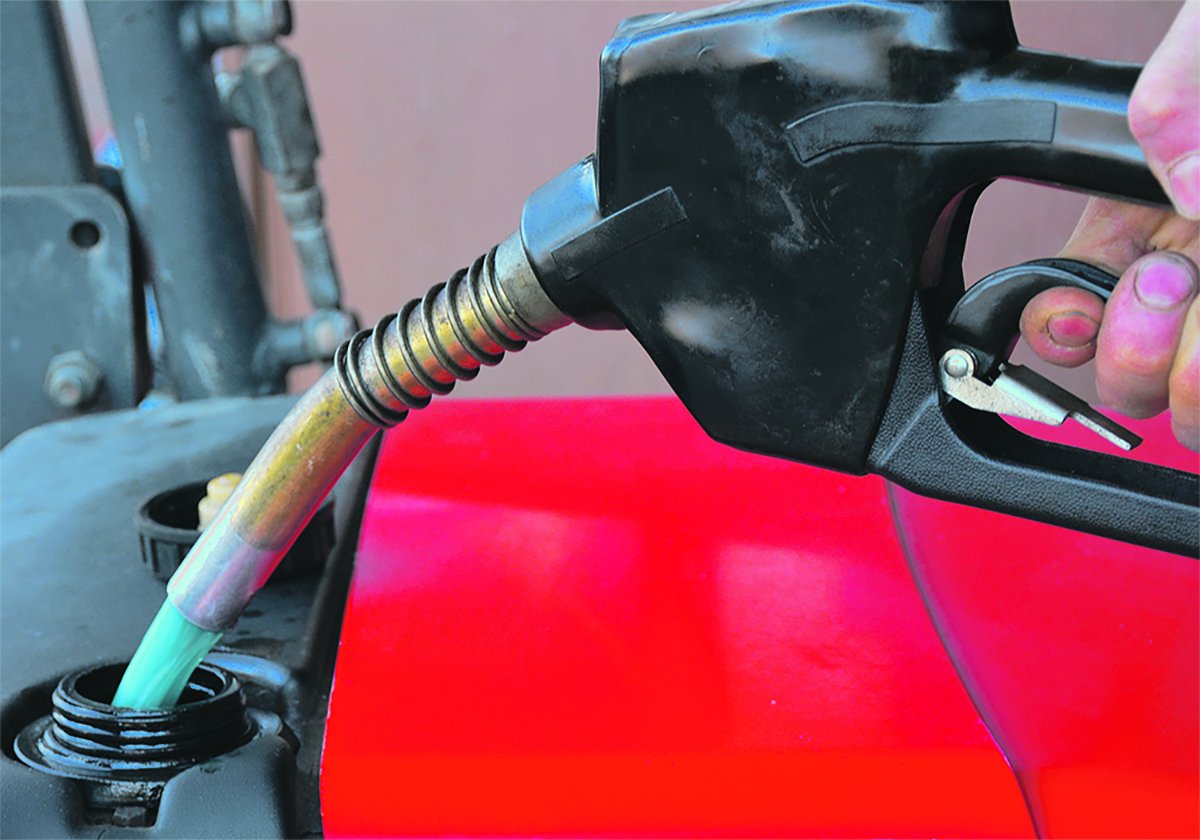After lodging three service complaints against Canadian National Railway in the past year, it’s a safe bet the Canadian Wheat Board isn’t at the top of the railway’s Christmas list.
It probably dropped even further last week, after the board said a new car ordering program at CN has put the marketing agency’s shipping program three weeks behind schedule and cost prairie farmers close to $2 million in vessel demurrage charges since Feb. 1.
“Every week that the new system continues means demurrage charges continue to grow,” said CWB spokesperson Maureen Fitzhenry.
Read Also

Alberta may eliminate marked fuel
Alberta may soon stop selling dyed gasoline and diesel.
“It’s directly related to the changes brought in by CN.”
The railway denies that, saying rail shipping problems are due to weather.
Mark Hallman of CN said extreme cold and snow severely disrupted rail service in late January and early February and the company is still trying to catch up.
“It threw the network out of balance with respect to crews, power and cars,” he said, adding the railway shut down completely for two days in January. “It has nothing to do with the new ordering process.”
Fitzhenry said that’s no excuse.
“We have winter every year,” she said. “They need to plan for that and to have the resources in place to respond quickly and effectively.”
She added the weather was worse last winter, and much worse in 2005-06, when the Canadian Transportation Agency ruled that service problems could not be blamed on the weather.
“Weather couldn’t possibly be an adequate explanation for the scope of the problem we’re facing,” she said.
The board said last week it needs 5,000 more cars than it has received from CN since the new program went into effect at the beginning of February.
“CN is delivering only a small fraction of the cars we want and need,” said Fitzhenry. “We’re at least three weeks behind.”
As a result, the board has had to devote extra resources to try to juggle rail logistics to serve its customers as well as it can.
The agency is concerned whether it will be able to get the required volume and type of grain in place to meet its export commitments. That in turn creates uncertainty when it comes to bidding on sales and threatens to damage Canada’s international reputation as a reliable supplier.
Hallman said the railway is making progress in catching up as the weather improves, but declined to predict when it would be able to catch up to demand, not only from the board but shippers of other grain and commodities.
Under the new program, shippers must place orders for empty cars to be spotted at specified loading locations, anywhere from one week to 24 days in advance. Until now, cars have been allocated based on what needs to be moved to ensure that the right grain arrives at export position at the right time to meet arriving vessels.
Hallman said the new program simply alters how the railway accepts car orders.
However, the board and other grain shippers say the new system is inappropriate for the grain industry. For example, the board said, if it requests 1,000 cars for Prince Rupert and if the railway decides it can only service 500 cars, that’s how many it will provide, with the rest rolled over in an “open order book” for future weeks.
On Jan. 18, the board and five grain companies asked the CTA to immediately issue an interim order to prohibit the new car ordering process that went into effect Feb. 1, and order the railway to go back to the previous system.
The transportation agency declined, saying it needed time to gather more information. It said it will rule on the request for interim relief by the first week of April.














